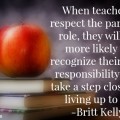On Martin Luther King Jr Day we went to the park with our homeschool friends and had a beautiful day. It was glorious weather for a park day. We had the bonus of bringing my 15-year-old who is currently attending public school, so he got to spend time with some of his friends there. On the way home I noticed he was upset. After some probing he revealed again his frustration with homework: specifically meaningless homework and thoughtless grading.
 My son is not afraid of the work of learning. He loves it. He understands that to learn Spanish there is a lot of work. It involves rote memorization, repetition and hard work. Math involves repetition and practice and hard work. It sometimes takes time to work through a problem and understand a new concept. He works through it. It takes him time. He never complains about that kind of homework. He writes essays and willingly works to edit them.
My son is not afraid of the work of learning. He loves it. He understands that to learn Spanish there is a lot of work. It involves rote memorization, repetition and hard work. Math involves repetition and practice and hard work. It sometimes takes time to work through a problem and understand a new concept. He works through it. It takes him time. He never complains about that kind of homework. He writes essays and willingly works to edit them.
Learning involves hard work.
That’s not what he hates.
He hates packets. Worksheets to fill in blanks as he reads a text book. He already reads the text book for fun and because he wants to know. The worksheet kills it for him. It interrupts his learning and reading.
He hates the vocabulary assignments in English. As they read the book they have to look for certain words that are…mostly written in order on a list. So he has found himself rereading a 4 or 5 page section to find a work he already knows the meaning of, only to find it 10 pages later; it was just in the wrong place on the list.
He hates that theater is mostly making things up for them to do…none of it actually preparing them to try out for a school play. Their school has a magnificent theater program, but the class itself does not even try to teach the skills needed to be a part of that program. Why not practice try outs? Why not learn some dancing and singing? Why not do a small play in class to have the experience? Not a small part of a scene, but something a little bigger that would involve more complex memorization and nuance. Make it meaningful!
His biology assignment…he was given the biome Caves. He had no choice in that-which is fine; the teacher wants the biomes covered. He has to fill in certain blanks to be graded well. Caves are a very unique biome and they don’t exactly have everything in the same way other biomes do. They don’t fit the nice little boxes. But he has learned if he doesn’t fill in every blank he will be graded less. Now I know his grade can stand a point here or there when he’s doing so amazingly well on everything else, but this drives him a little crazy.
 In a similar vein a friend’s young child was given a spelling pretest. She got 100%. Then everyone in the class was given the homework of writing the 17 words each 5 times. She didn’t want to do it. Now if we assume spelling lists are a good plan, writing the words you don’t know 5 times each will help you remember them. For the child who does not know the words, this is meaningful repetition. For this particular child it is meaningless.
In a similar vein a friend’s young child was given a spelling pretest. She got 100%. Then everyone in the class was given the homework of writing the 17 words each 5 times. She didn’t want to do it. Now if we assume spelling lists are a good plan, writing the words you don’t know 5 times each will help you remember them. For the child who does not know the words, this is meaningful repetition. For this particular child it is meaningless.
Meaningless work kills love of learning. It breaks the student’s desire to do the real hard work that is necessary for learning and life. School becomes a series of pointless hoops to jump through.
Teachers in this scenario are put in the awkward position of figuring out what would be meaningful for whom. This challenge is compounded when grading is required and regulated. Many teachers have to have a certain number of gradable assignments. Teachers do not have an endless amount of time to make these adjustments, grade uniquely, and deal with the administration on how to work it all out. How do they meet that need for some children who may not need a particular assignment? How do they work with the variable numbers of assignments? The system as we know it isn’t made for individualization. How can an administrator insure a random child’s needs are being met?
I know of wonderful parents and teachers who work together to limit homework, specifically in elementary school grades, to what is meaningful. In some cases a parent will request it for their child, and the teacher will understand that working together they both value the child’s education and time to play. Good parents trust a teacher to notice things they don’t, so there may be occasions when a teacher has suggestions for work that the child needs, that the parent may not understand. Good teachers understand when a parent says enough is enough. Breaking up that possible relationship is the administration. Frequently hands are tied by administration, who can be so far removed from the kitchen table where the child and mom negotiate homework again…that they just focus on numbers and majorities and whomever can persuade them they are “doing something”.
I am not sure yet what this means for my son. I am hoping his first 14 years will preserve his firmly established love of learning. Hoping. And I will be making some emails.
About Britt Kelly
Britt grew up in a family of six brothers and one sister and gained a bonus sister later. She camped in the High Sierras, canoed down the Colorado, and played volleyball at Brigham Young University. She then served a mission to South Africa.
With all of her time in the gym and the mountains and South Africa, she was totally prepared to become the mother of 2 sons and soon to be 9 daughters. By totally prepared she means willing to love them and muddle through everything else in a partially sleepless state. She is mostly successful at figuring out how to keep the baby clothed, or at least diapered, though her current toddler is challenging this skill.
She feels children naturally love to learn and didn’t want to disrupt childhood curiosity with worksheets and school bells. She loves to play in the dirt, read books, go on adventures, watch her children discover new things, and mentor her children. Her oldest child is currently at a community college and her oldest son is going to high school at a public school. She loves to follow her children in their unique paths and interests.
She loves to write because, unlike the laundry and the dishes, writing stays done. Whenever someone asks her how she does it all she wonders what in the world they think she’s doing.
Twitter •







